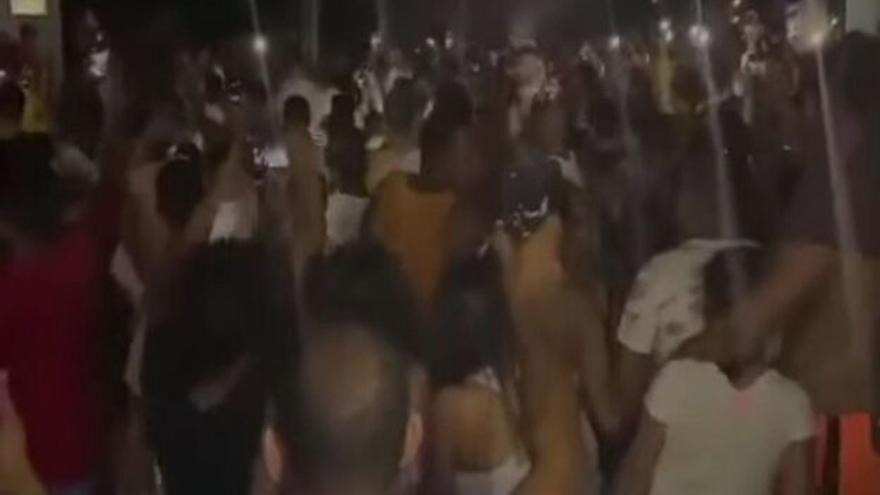
![]() 14ymedio, Pedro Corzo, Miami, 28 August 2022 — El 23 se rompe el corojo [on the 23rd the truce is broken (and we start riding again)], is a Mambisa expression that meant the end of the truce between the insurgents and the Spanish, who refused to leave the “always faithful island of Cuba,” a phrase that, over time, became synonymous with the fact that there is no possible conciliation when the victims of the abuses assume that they have no other alternative but to defeat their perpetrators.
14ymedio, Pedro Corzo, Miami, 28 August 2022 — El 23 se rompe el corojo [on the 23rd the truce is broken (and we start riding again)], is a Mambisa expression that meant the end of the truce between the insurgents and the Spanish, who refused to leave the “always faithful island of Cuba,” a phrase that, over time, became synonymous with the fact that there is no possible conciliation when the victims of the abuses assume that they have no other alternative but to defeat their perpetrators.
General Antonio Maceo, Bronze Titan, the most distinguished Cuban general, 26 wounds in combat, refused to sign a peace agreement after ten years of struggle, 1868-1878, with the Spanish general Arsenio Martínez Campos, both agreeing to resume hostilities eight days later, motivating among the guerrillas the enthusiastic exclamation: “on the 23rd the truce is broken!” alluding to the end of the truce that many considered ominous.
Castroism breathed into broad sectors of the citizenry the certainty that the regime was immovable, that any action against it would fail and its actors would suffer the consequences. Still more, Fidel Castro had the audacity to proclaim that socialism in Cuba was irreversible, as Adolf Hitler proclaimed his thousand-year Reich.
However, we write with pride that in these six long decades, the resistance has not ceased, as shown by the numerous political prisoners who rot in prisons without international organizations being able to visit them as demanded by, among others, the Cuban Observatory of Human Rights.
On the property called Cuba, which the Castro brothers appropriated, it seems that so many opponents have emerged that the political police can’t control them. Many are losing the fear that gripped them day after day, and others show that the population is willing to break the vile armor of an atrocious dictatorship that has humiliated and vexed them for years.
It’s evident that Cubans want to break the truce since they don’t stop demanding better living conditions along with the end of the dictatorship, as has been seen in the city of Nuevitas, where the city dwellers have constantly shouted at the dictatorship that they were tired of living as slaves, some alluding in their demands to the Mambi machete redeemer and apparently echoing the expression of General Antonio, “Freedom is conquered on the edge of the machete, it is not asked for; begging for rights is typical of cowards unable to exercise them.”
The protests in most of the national territory are a constant, a symptom that the population is losing its fear and freeing itself from the burden of blind obedience to a leadership that has only reaped failures and that has devastated the country as if it had suffered a war.
Apparently, the growing misery and the permanent harvest of frustrations have led the people to realize that the promises of the regime are invalid and that they need to act at any cost to be able to access a better life.
After the protests of July 11, 2021, there has been a notable discontent aggravated by the power cuts. Power is miraculously restored when the population protests firmly, as has happened in the neighborhood of Pastelillo, in Nuevitas. This can be understood that for the Castro government, those who are obedient suffer the most.
Everything seems to indicate that repression is no longer enough to continue controlling a population dissatisfied in all aspects. Fear and hope, the two most leafy trees of Castroism, are apparently drying up rapidly.
Citizens are noticing, more than ever before, the high levels of corruption and ineptitude of officials to solve the numerous and constant problems generated by the regime itself, which aren’t caused by the vaunted embargo or American aggression.
In addition, the most faithful supporters of Castroism, no matter how servile they may be, understand that the protests are legitimate, that they are not imported and that they don’t respond to proposals from abroad. It is the neighbor, the repressor himself, who suffers from the systematic and permanent stupidity of a failed dictatorship in all aspects, except in their effort to destroy the Cuban nation as they did with the Republic.
Translated by Regina Anavy
____________
COLLABORATE WITH OUR WORK: The 14ymedio team is committed to practicing serious journalism that reflects Cuba’s reality in all its depth. Thank you for joining us on this long journey. We invite you to continue supporting us by becoming a member of 14ymedio now. Together we can continue transforming journalism in Cuba.
